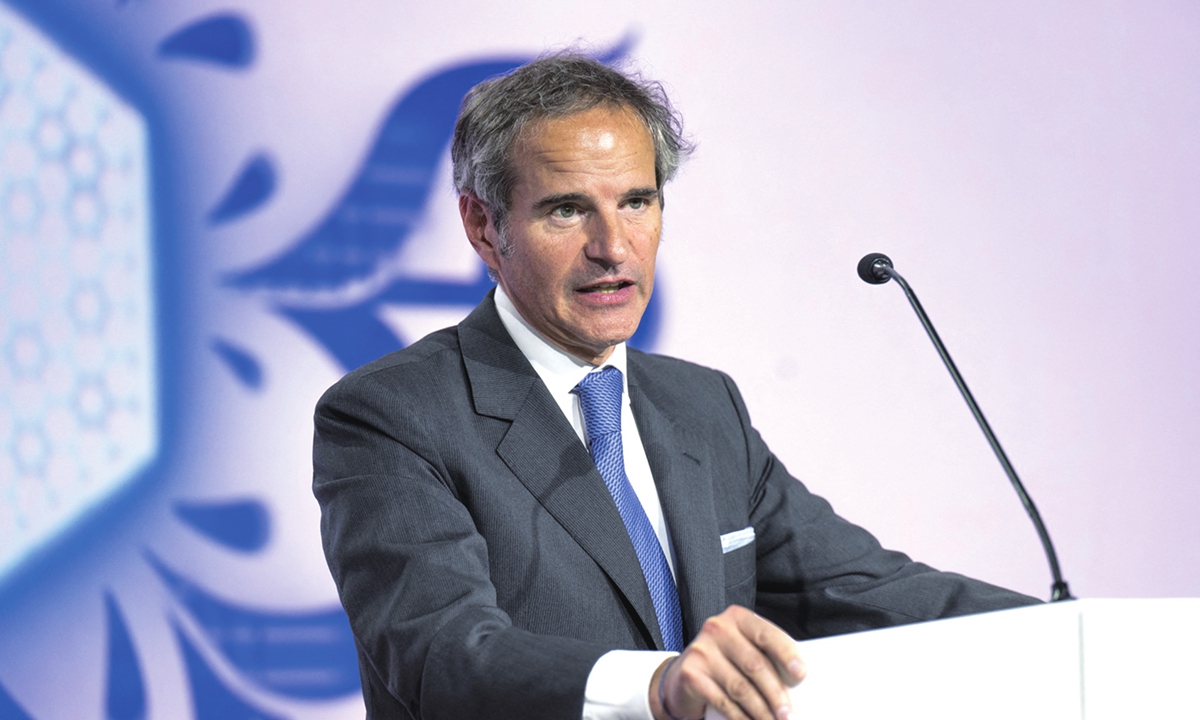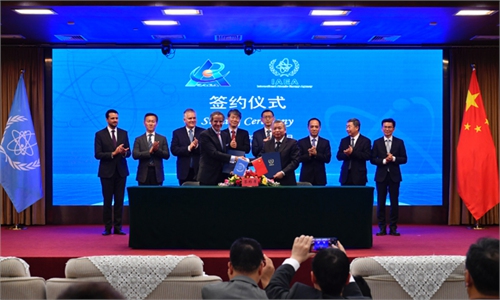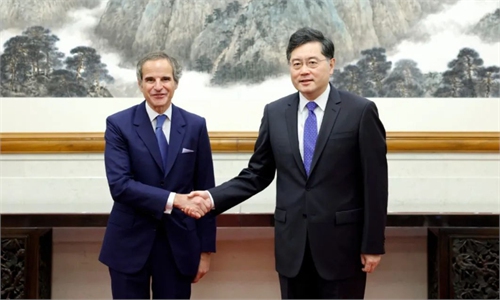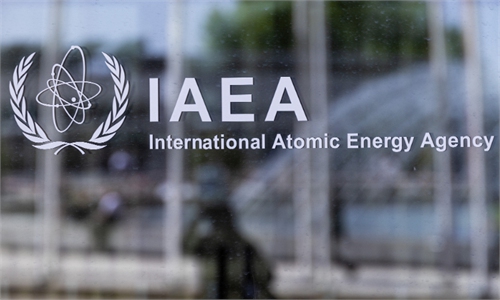China has made enormous strides in nuclear energy; IAEA chief sees cooperation as positive

Rafael Mariano Grossi Photo: AFP
Editor's Note:At the invitation of the China Atomic Energy Authority, Rafael Mariano Grossi, director general of the International Atomic Energy Agency (IAEA), is visiting China from Monday to Friday. During his visit, Grossi highly praised China's Global Development Initiative and Global Security Initiative, acknowledged China's achievements in nuclear energy development and nuclear technology applications, fully recognized the long-term cooperation between China and the IAEA, and expressed his expectations for further deepening cooperation with China in various fields. On Monday, Grossi was interviewed by local media outlets, including the Global Times.
Q: The Practical Arrangements between the IAEA and the China Atomic Energy Authority on Cooperation in the Area of Nuclear Power Infrastructure Development and Deployment of Small Modular Reactors was signed on Monday during your visit here in China. What are IAEA's considerations in supporting member states' development of small modular reactors and nuclear power infrastructure? How will it contribute to achieving the goals of "carbon peak" and "carbon neutrality"? How do you evaluate China's contribution to addressing climate change through the development of nuclear energy?
Grossi: This is my first visit to China as director general of the IAEA. The relationship between China and the IAEA is strong and is growing.
Next year, we will celebrate 40 years of the original membership of China in the IAEA. In these 40 years, China has made enormous strides in terms of its own nuclear power program. Today, China is one of the leading countries in the world with its nuclear power units in operation. This means that the IAEA and China, through different institutions and agencies, have lots of areas of cooperation.
The IAEA helps countries in their own nuclear power programs, also in developing in new areas. We see that given the challenges posed by global warming and necessity for countries to move away gradually from fossil fuels into clean sources of energy. Nuclear power acquires great interest. China has already decided and is moving very fast in this direction, but others need support too. So the IAEA establishes alliances and partnerships with countries like China that have the technology, that have the know-how and the capacity to help them.
So with the agreements that we have witnessed ̶ and I myself signed a few of them [in China] ̶ we will be able to establish the right areas of cooperation where the Chinese experts are going to be helping our experts help others. I think it is a mutually beneficial relationship that we have in China. And I expect to see it grow even further.
Q: How will the IAEA help and support developing countries in utilizing nuclear technology to promote development? What role can China play in this regard?
Grossi: One of the biggest concerns that I have seen in the past few years is the ever increasing gap between the needs in terms of nuclear medicine, oncology, radiotherapy, and the availability of radiotherapy, particularly in the developing world, and especially in Africa, where 70 percent, if not more, of the population do not have any access at all to radiotherapy.
We know that in terms of cancer care, at least half of the patients require radiotherapy. In China, there are excellent capabilities. I launched, just a year ago, a global initiative called Rays of Hope, which is aimed at providing this access to radiotherapy to countries that have none of that. China, which has already a very vast international cooperation and assistance programs, can be an essential partner for the IAEA to help these countries. How we are going to do it? It's going to take different forms.
It's going to take, for example, the form of providing joint training to technicians, psychologists, radiotherapists, it's going to take the form of the donation of equipment, linear accelerators, and other equipment that are PEC-CT scans, essential equipment, which is common in China, but does not exist in many countries in the world. It will also mean that Chinese experts, doctors, radiotherapists are going to be joining the teams of Rays of Hope, teams of the IAEA to provide assistance.
I am extremely grateful for the generosity and understanding that China is showing by seeing that this is a problem that we have to take care of immediately. These are some of the ways in which China and the IAEA will be partnering for Rays of Hope.
Q: What are your expectations for the future cooperation between China and the IAEA? What recommendations do you have in mind for China's nuclear energy development?
Grossi: We have a wonderful opportunity at this point. I was addressing some of the Chinese experts at the China Institute of Atomic Energy. I was telling these young people that they have the enormous privilege to be living at a time where nuclear energy, nuclear applications, nuclear technology are key to the growth of China and to the welfare of the world, in an environmentally friendly way.
I believe that by increasing our cooperation, and making it as strong as it can be, we are going to be helping China and helping others. So I believe there is a great opportunity in front of us. It is up to us, China and to the IAEA to seize it.



